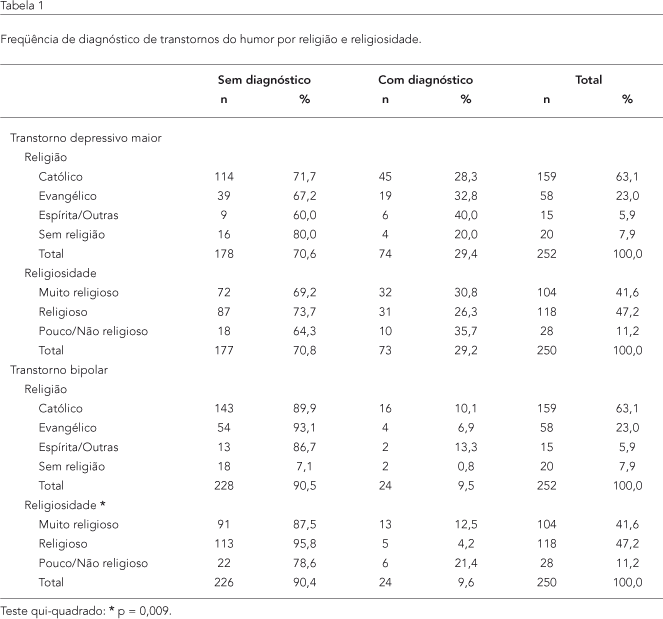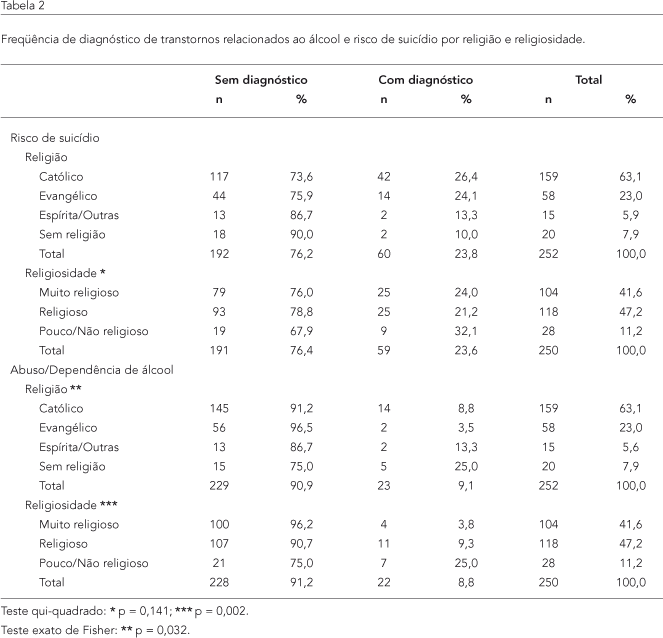In order to evaluate the prevalence of psychiatric disorders in a Brazilian general hospital and their association with religious denomination and religiosity, 253 inpatients were interviewed. A socio-demographic questionnaire and an instrument for diagnosis of mental disorders (MINI-Plus) were applied. Distribution of religious denominations was: Catholic 63.2% (n = 177), Evangelical Protestant 20.4% (n = 57), Spiritist 4.3% (n = 12), traditional Protestant 2.3% (n = 8), and "no religion" 7.5% (n = 21). Degree of religiosity was: very religious 43.2% (n = 116), religious 46.9% (n = 129), hardly religious 9.8% (n = 27), and not at all religious 1.1% (n = 3). Evangelical (Pentecostal) religious affiliation and frequent attendance at worship services were associated with fewer alcohol problems. Membership in an Evangelical (Pentecostal) church may thus have an inhibitory effect on alcohol dependence or abuse. Intensity of religiosity was moderately associated with overall prevalence of disorders, especially bipolar disorder. It is reasonable to conclude that extreme situations (very intense versus very limited religious participation) are related to this finding, associating both an exacerbated pursuit of religion and alienation from it with altered mental states.
Religion; Mental Disorders; Inpatients




